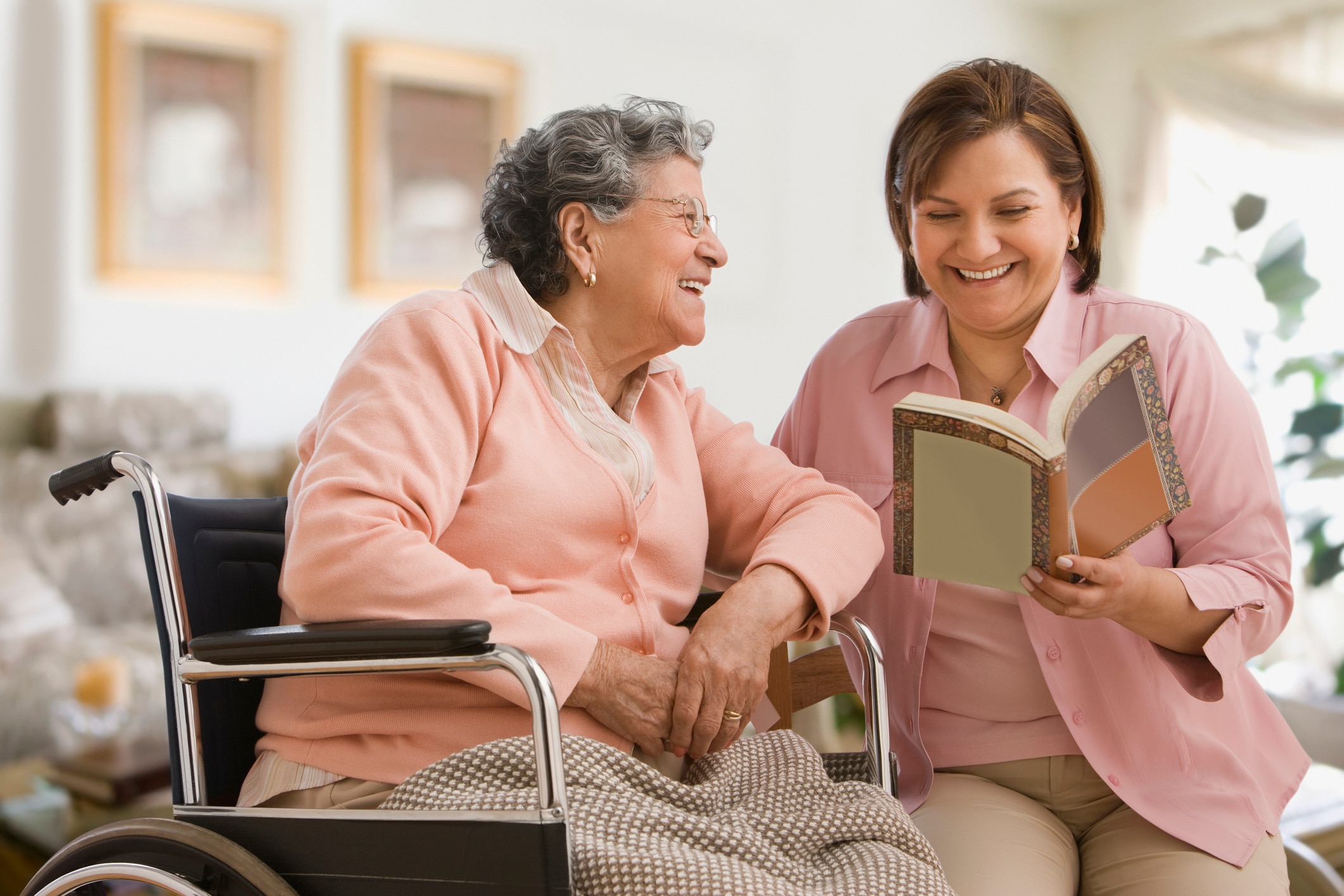When your partner develops dementia, it can feel like your world is slowly shifting beneath your feet. The person with whom you’ve shared nearly every moment for decades — the person you know best in all the world — begins to undergo personality changes that make your heart break in ways you didn’t know were possible. For many spousal caregivers, the hardest part isn’t the caregiving itself. It’s the emotional and relational loss that comes with it.
“Dementia caregiving is especially difficult for spouses because it changes the very nature of a person they may have been married to for decades,” says Neisha Garcia, a registered nurse and certified dementia practitioner at Remo Health. “A person who was once mild-mannered may become easily frustrated or lose their temper. These behaviors are symptoms of the disease, not a reflection of the person you love or the life you’ve built together.”
Navigating these changes means learning to balance compassion with self-preservation, honoring both your partner and yourself as you face this evolving reality together. Here, experts share how caregivers can navigate the emotional toll of dementia in a marriage, from coping with ambiguous loss to finding new ways to love and connect.
Key takeaways
- When a spouse develops dementia both partners experience loss — one of abilities and the other of shared connection. Recognizing that grief is part of caregiving helps couples honor the love that remains even as the relationship evolves into something new.
- Caregivers often feel guilt for their anger, sadness or resentment but acknowledging those emotions is a key act of resilience. Naming your grief, seeking support and creating space to mourn keeps you grounded and prevents emotional burnout.
- As communication changes small gestures like touch, music or shared memories can preserve intimacy. Redefining closeness through presence and sensory connection helps couples focus on moments of love rather than loss.
- Respite programs, therapy and help from friends or aides allow caregivers to rest and sustain compassion over time. Caring for yourself protects both you and your partner, ensuring that your caregiving remains rooted in love not exhaustion.
Understand the emotional toll of dementia in marriage
When dementia enters a marriage, both partners lose something, but in very different ways. The spouse living with dementia loses cognitive abilities and emotional ground, while the caregiving partner experiences what’s known as ambiguous loss — the pain of grieving someone who is still physically present.
“Ambiguous loss happens when your loved one is there in body but psychologically or emotionally different,” explains Garcia. “It’s a continuous, unresolved grieving process often described as ‘the long goodbye.’”
This kind of grief can be incredibly disorienting because there’s no clear end point or closure. You may cycle between denial, anger and deep sadness, then feel guilty for those feelings. You’re still a spouse, but you’ve also become a caregiver — a role that can blur emotional boundaries and chip away at your sense of identity.
This dual role can create tension and internal conflict, notes Niloufar Esmaeilpour, a clinical therapist and founder of Lotus Therapy & Counselling Centre. “Dementia alters the relationship so much that it can be deeply frustrating,” she says. “These feelings of anger or resentment don’t make caregivers bad spouses — they make them human.”
How to name and validate your emotions
It’s common for caregivers to suppress their emotions out of guilt, but acknowledging these difficult feelings is essential for resilience.
“Recognizing your grief isn’t betrayal,” says Esmaeilpour. “It’s a sincere and honest perception of the radical transitions that dementia causes.”
Tangible ways to validate your grief:
- Name it: Naming your emotions, whether through journaling, therapy or a caregiver support group, helps you process them rather than letting them build up into resentment or despair.
- Give yourself permission to feel: Esmaeilpour encourages caregivers to practice self-compassion: “Telling yourself, ‘This is emotionally draining, and my feelings are legitimate,’ can reduce guilt and lead to healthier coping strategies, such as setting boundaries or taking structured breaks.”
- Create rituals to honor your loss: “Writing, having a private therapist or joining a support group meant for caregivers of dementia patients can help create a place that is safe for mourning and expressing the sadness of losing a part of the relationship,” says Esmaeilpour.
Your frustration and sadness aren’t meant to be overcome; they’re feelings to honor. As Esmaeilpour explains, when caregivers acknowledge their own emotions while staying mindful in the present moment, they can “bear the duality of grief and presence,” allowing space for both their own grief and empathy for their partner.
How to redefine connection within the marriage
As dementia progresses, intimacy and communication often shift in profound ways. Garcia explains that dementia affects the brain in ways that lead to “cognitive changes such as personality changes, emotional changes, memory changes, judgment changes, sensory changes (hearing, sight, taste, touch and smell), mobility changes” — all of which can make it harder to connect through conversation the way you once did. Couples who once shared deep exchanges may now communicate through gestures, touch or silence.
“[Intimacy] can be expressed through touch, music, shared activities or simply being present,” says Esmaeilpour. She recommends small, intentional rituals, like holding hands during a favorite show, listening to meaningful songs together or looking through photo albums that evoke shared memories. These sensory moments can spark emotional recognition and connection, even if only for a short time.
Garcia notes that this redefined intimacy can help ease the grief of change. “The person you know and cherish is still there, even when it’s hard to recognize them,” she says. Finding small ways to connect helps you focus on love, not loss.
Letting go of perfection and the idea of preserving the relationship exactly as it once was can also bring a feeling of peace. You can grieve the past while still nurturing new, gentler forms of closeness.
“Respite care, adult day programs and support services offer relief from caregiving duties. That time away promotes rest, reduces stress and helps avoid burnout while ensuring your loved one’s needs are met.”
— Neisha Garcia, a registered nurse
How to create a support system
If you’re often trying to shoulder everything alone out of love and/or obligation, you’re far from alone. But no one can sustain that pace indefinitely. Building a strong support network is essential, for both emotional and physical survival. Start by identifying your circle of support and the resources available to you.
Explore respite care and adult day programs
Garcia emphasizes that professional and peer resources can make an enormous difference. “Respite care, adult day programs and support services offer relief from caregiving duties,” she says. “That time away promotes rest, reduces stress and helps avoid burnout while ensuring your loved one’s needs are met.”
Look into Medicare benefits
One often-overlooked option, Garcia adds, is the Centers for Medicare & Medicaid Services (CMS) GUIDE program, which provides Medicare beneficiaries with a dementia diagnosis an annual $2,500 benefit for respite care. This coverage makes it possible for caregivers to take needed breaks, whether for errands, rest or recovery, while continuing to maintain quality care for their spouse.
Try specialized therapy
Esmaeilpour suggests seeking a therapist who understands chronic illness or caregiving-related grief. To find one, ask your loved one’s doctor for referrals, search directories like Psychology Today (filter for “caregiver stress” or “chronic illness”) or contact your local Area Agency on Aging for therapist recommendations.
“Having a space that’s safe for mourning and expressing sadness is crucial,” she says. “Caregivers can achieve emotional support and validation by grafting memory onto the moment — remembering the love they shared while being mindful in the present.”
Family, friends and professional aides
You don’t have to carry everything on your own. Leaning on trusted loved ones or professional aides can ease the burden of daily caregiving and give you space to rest and reconnect with yourself. “Getting help from friends, family or professional aides allows caregivers to take on the role without it consuming every part of their life,” says Esmaeilpour. Accepting support doesn’t lessen your devotion; it helps you preserve your energy and empathy, allowing your care to remain grounded in love.
Make space for self-care without guilt
You may often feel that you simply don’t have time for self-care or that it feels selfish. But maintaining your own well-being is a form of love, not indulgence.
Esmaeilpour often reminds caregivers that looking after yourself is not a luxury but a necessity to keep caring for their partner. “Self-care is tantamount to the case of the airplane where you have to put on your own oxygen mask first,” she says.
Rethink your routine
Try building small, consistent self-care practices into your daily routine. A brief walk outside, meditation or even a quiet cup of coffee in peace can help reset your nervous system. Over time, these micro-breaks prevent caregiver burnout, which can manifest as irritability, exhaustion or feelings of hopelessness.
Reimagine self-care
Reframing self-care as essential — not optional — can also ease guilt. “By filling their emotional reserves, caregivers can return to their partner with more patience, presence and compassion,” Esmaeilpour explains.
If possible, plan regular respite breaks or short stays in adult day programs. This gives you time to recharge and your spouse time to engage with others in a safe, supportive setting.
Know when to seek professional help or memory care
Even the most devoted spouse has their limits. Recognizing when you’re approaching a breaking point doesn’t mean you’re failing; it means you’re human.
“Emotional breaking points often show up as constant fatigue, irritability or feeling overwhelmed by even simple tasks,” Esmaeilpour says. “These are signals to seek help immediately, whether from a mental health professional, a friend or through respite care services.”
If your partner’s needs begin to surpass what you’re able to safely manage at home, memory care may be the most compassionate choice, even though the decision is heartbreaking.
“There’s no single right time for memory care,” Garcia says. “But families often consider it when the person’s daily needs exceed the caregiver’s ability to meet them or when there’s a safety risk for either partner.”
Guilt is normal, she adds, but misplaced. “Remember, the right decision is one made out of deep love and care,” Garcia says. “You’re your spouse’s strongest advocate. The disease changed what ‘home’ needed to look like. You acted in their best interest.”
Regular visits, support groups and positive self-talk, such as reminding yourself that you kept your promise to ensure your partner is cared for and protected, can help ease the emotional transition.
A final word on dementia in marriage
Loving someone through dementia means learning to let go without giving up. It’s redefining your connection with your partner, finding meaning in the small moments and allowing yourself to grieve openly while still showing up with compassion.
As Garcia points out, even when these choices feel weighted with guilt, there’s rarely a single “correct” way to care for a partner with dementia. “The right decision is always the one made out of deep love and in your spouse’s best interest,” she says.
It’s a reminder that love doesn’t end where memory fades. It evolves, often into something quieter, slower and every bit as profound.
You are not alone in this. Support is out there, and your feelings — your grief, frustration, exhaustion and, yes, your enduring love — are all valid. Caring for yourself as well as your partner allows you to honor the marriage you built together and the person you continue to be.





